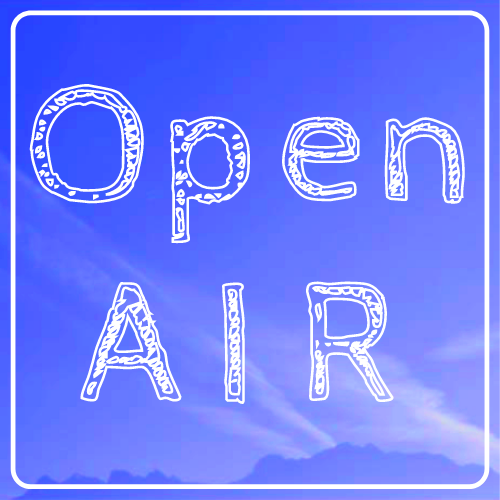Conversation with Kailyn McCord
Open AIR Artist-in-Residence 2019
Flathead Lake Biological Station
" My experience as an Open AIR Artist-in-Residence was entrancing, productive, restful, and quiet. Writing comes in many forms, but two of its richest are the momentary epiphany, and the great chugging machinery of deep and complex relational thought, both of which are best exercised in space and time when one can know one won't be interrupted, when the surroundings are at peace, when the veil that usually governs the inspired mind draws so thin as to become invisible. Amidst the pines and tiny owls and denning mother bears at the biostation, I found this space. It was invaluable!"
- Kailyn McCord
Open AIR: What was your research process at the Bio Station?
Kailyn: The book I was working on at the time had a lot to do with human impact on natural processes (it centered around wildfire and development in California). Getting to know those concepts through the scientists at the biostation was invaluable; although our subjects were different, the focus on systems was the same. I learned more about the process of studying, and definition of, "ecology" in those weeks than I would have thought possible. On boats with tenured faculty and graduate students alike, the chance to see the breadth of how we study systems - to take in the view of the wide lake while simultaneously pulling samples of microscopic organisms from its depths - was a literal exercise in scale, causal relationships, and the degree of human impact. It enriched my writing greatly.
Open AIR: How would you describe your work?
Kailyn: I write stories, mostly about poor people in rural places, that seek to explore phenomenology and self-conception as they relate to temporal metaphysics. If that sounds heady, what I mean is: I write stories that are concerned with how people think about themselves, and by extension, what they assume about the world around them. The last two stories I've loved are about a lesbian couple with a new baby navigating motherhood during a fire evacuation in California, and an albino alligator in Louisiana and the three friends who run its roadside attraction.
I also write nonfiction, and as a genre, my work runs the gamut from portraiture to memoir to narrative nonfiction. I try to align myself with the rigor and aesthetic usually expected of fiction, as what fascinates me about nonfiction as a genre is not that it's true, but rather than the tension on the page between a narrative and a character self evokes the same kind of phenomenological concerns as I explore in fiction.
Above: Kailyn delights in local visitors. Flathead Lake, 2019.
Open AIR: What are you up to now?
Kailyn: I'm writing in Oakland, California, working toward a new fiction project about disaster in the West, as well as the usual pursuits: submitting work - fiction and nonfiction - to journals, drafting, editing, and revising shorter work. The book I was working on during my residency is in the process of finding representation, and hopefully (eventually), publication. I'm unemployed (due to Covid-19 shutdowns), and so I'm also growing a lot of vegetables and working on a monthly 'zine project. Since attending open air, my work has appeared in Ploughshares, The Master's Review, and Brevity (the last of which is a piece I wrote about the Bio Station). I have essays forthcoming in The Cincinnati Review and The Dallas Review. In July, I'll attend (via zoom) the Mendocino Coast Writers' Conference on a nonfiction scholarship, and in August, I'll return to the Bread Loaf Writers' Conference. Although it's been a difficult and strange time in the greater world, I've actually found the last months quite fruitful for writing.
This interview was conducted remotely. Thank you Kailyn!
Enjoy Kailyn McCord's writing here.
This Residency is made possible by a partnership between Open AIR and the Flathead Lake Biological Station, the second oldest biological field station in the US and the oldest west of the Mississippi River. They have one of the oldest, contiguous lake datasets in the world.
Learn more here.



